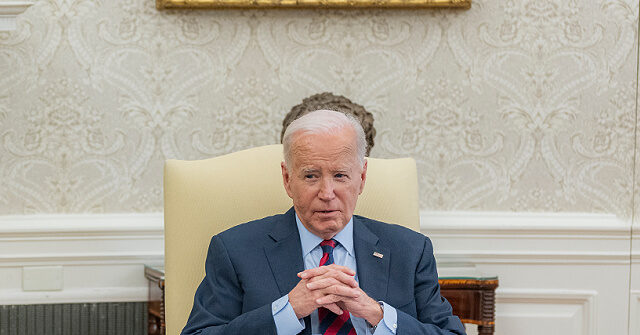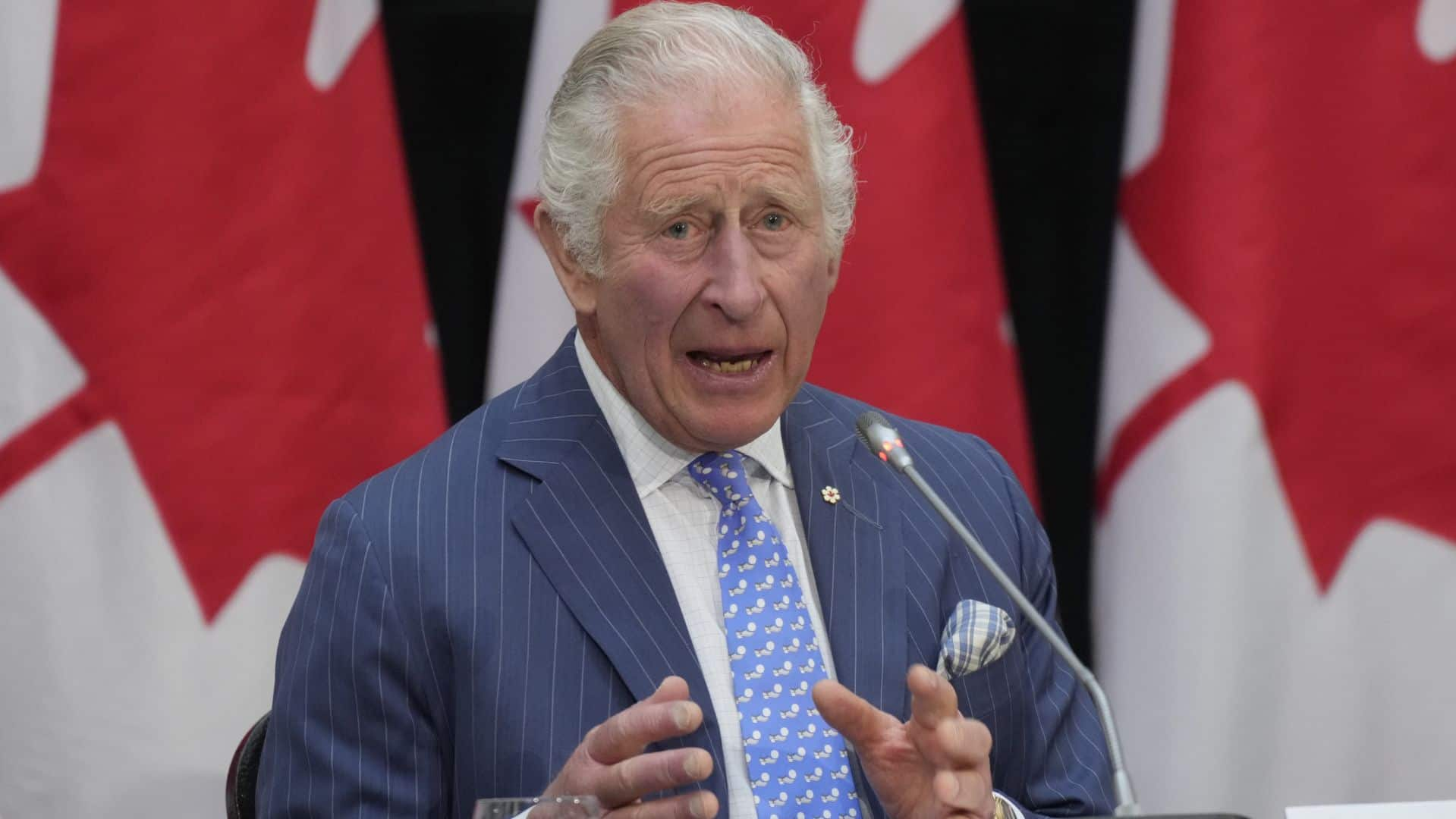Hello, royal watchers. This is your regular dose of royal news and analysis. Reading this online? Sign up here to get this delivered to your inbox.
When Denmark’s next monarch was in Toronto five years ago to promote the economic fortunes of Greenland, he was tapping into fond memories of his time as an adventure-seeking prince trekking through the region’s unforgiving yet beautiful terrain.
But when Crown Prince Frederik spoke at a mining conference of the need to safeguard “the fragile ecosystem for generations to come,” he was also offering hints of environmental concern that have become a hallmark for him.
Frederik becomes king on Sunday, two weeks after the surprise abdication announcement from his mother, Queen Margrethe, who is 83 and has reigned since 1972.
Frederik and his wife, Crown Princess Mary, bring a sense of a new royal wind blowing through Copenhagen.
“The incoming king and queen are clearly very tapped into 21st-century issues and they’re going to be a very modern royal couple,” Toronto-based royal author and historian Carolyn Harris said in an interview.
Harris says that like King Charles, Frederik, 55, had the experience of his parents often being away on royal duties when he was young.
“Then, as he grew older, like his mother … he’s taken on a very wide range of interests, different interests than [her], but very topical ones,” Harris said.
“He’s become an advocate for Danish renewable energy, for combating climate change. It’s very clear that he has a great deal in common with King Charles III and Prince William … in terms of his concern for the environment.”
Mary, 51, has been seen as more active on social issues.
“It is quite correct that [Frederik] has moved in the direction of climate consciousness and sustainability during the past few years, I would say, as everybody else has,” said Sebastian Olden-Jørgensen, a professor of modern history at the University of Copenhagen, in an interview.
“Mary actually has moved further” and made several social issues a top priority, as well as as establishing the Mary Foundation, he said.

“Crown Princess Mary has taken on anti-bullying … and has also been the patron of Pride Copenhagen, and has spoken up for LGBTQ rights and … for the importance of women’s rights and women’s economic equality.”
Australian-born Mary met Frederik at a pub in Sydney during the 2000 Olympics. They married in 2004, and Mary, who learned Danish, is popular in her adopted country.
“She’s very loved…. She’s a fashion icon, as we say, but that’s not enough,” said Olden-Jørgensen.
“She has slipped very methodically, very quickly into her role. And the role she has chosen and developed very consistently is that of a more serious, more dignified royal person than the crown prince.”
Frederik, Olden-Jørgensen says, was uncomfortable with his royal role perhaps into his 40s.
“I would say it’s only during the last 10, 15 years, more or less since he married Mary … that he has found peace, made peace with his role, his life as a royal, and now he’s quite successful. He’s very down-to-earth and easygoing…. People love him for it.”

But being king will be different.
“I think that he will have to change,” said Olden-Jørgensen. “He cannot continue to play the role of a forever young crown prince.
“He’s 55 now. He will have to grow, to rise to the occasion.”
Danes’ view of the monarchy may give him some breathing room.
“The popularity of the monarchy and his popularity is so high and has been on a stable, high level,” said Olden-Jørgensen. “He doesn’t have to be quick; he can experiment if he needs.”
Margrethe’s abdication came as a shock to Danes, and seeing a queen give up her throne invites comparison to another monarchy where there has been speculation about such a move.
Queen Elizabeth was firm, however, in her determination to reign as long as fate allowed. There has also been curiosity about whether her heir, King Charles, might step aside for William.
“I wouldn’t say that [Margrethe’s abdication] puts pressure on Charles, but I would say that for every new monarch or ruling ruler that steps down, it becomes more of an option for the remaining,” said Olden-Jørgensen.

Harris said it is “very unlikely” Charles, whose coronation ceremony was held last May, will abdicate.
“Unlike Queen Margrethe the Second, who’s reigned for 52 years … Charles the Third waited a very long time to be king,” Harris said.
“He made clear in his Accession Day speech that he will devote the remainder of his life to this role.”
Harris also pointed to the family circumstances of William and his wife, Catherine, Princess of Wales.

“They often step back from royal duties during the school holidays, and if William and Catherine were the King and Queen, it would limit the amount of time they were able to spend with their children,” she said.
“It’s different in the Danish royal family, where the Danish royal children are teenagers … rather than quite young children.”
Another difference between the two monarchies? Frederik becomes king through proclamation and a short ceremony, without the spectacle of a coronation like the one that took place in London last May.
“It’s a ritual in the Danish tradition, which means that it is minimalistic,” said Olden-Jørgensen, who noted the last coronation in Denmark was in 1648.
“No pomp and circumstance. It’s the Danish way to do it.”
Liberal MP wants to upend tradition of oath to monarch

J.P. Tasker, our friend in CBC’s Politics bureau, had this report the other day about a bid to dispose of the oath Canadian members of Parliament swear to the monarch.
Members of Parliament and senators may be able to dodge the centuries-old oath of allegiance to King Charles if a Liberal MP gets his pending private member’s bill passed.
Canadian monarchists say the bill is republicanism by stealth — part of a larger effort to chip away at the Crown’s standing in Canada without actually scrapping the monarchy through a protracted constitutional fight with the provinces.
Canada’s republicans, meanwhile, welcome the bill as a necessary first step toward ridding the country of what they maintain is an outdated institution.
Section 128 of the Constitution demands that every newly elected or appointed parliamentarian swear they will “be faithful and bear true allegiance” to the reigning monarch.
Under Canada’s founding document, a member cannot legally assume their seat in Parliament until they’ve taken the oath to the sovereign.
The monarch listed in the one-line oath is Queen Victoria, but the oath includes a line stating that the actual name will change from “time to time.”

Bill C-347, introduced by New Brunswick Liberal MP René Arseneault, would upend that tradition by allowing federal politicians to swear an “oath of office.”
That stripped-down oath would simply state that an office-holder will carry out their duties “in the best interest of Canada while upholding its Constitution.”
Arseneault did not make himself available for an interview with CBC News.
Prime Minister Justin Trudeau has said repeatedly now is not the time to debate the monarchy’s role in Canada.
A spokesperson for Justice Minister Arif Virani said the government “will have more to say about this private member’s bill when it comes up for debate.” That will happen when Parliament returns later this month.
Arseneault has found a supporter in Pierre Vincent, a man with a long history of royal oath opposition. Vincent, a former federal public servant and a member of Citizens for a Canadian Republic, challenged a similar requirement that bureaucrats swear allegiance to the sovereign.
A private members bill introduced by New Brunswick Liberal MP René Arseneault proposes making the traditional oath of allegiance to the reigning monarch optional for MPs and senators.
Vincent, an Acadian, said he didn’t want the monarch’s name crossing his lips given the British role in the 18th-century expulsion of his French-speaking ancestors from what is now Atlantic Canada.
After a years-long battle, Vincent won and the oath was quietly dropped for bureaucrats. Now, he wants parliamentarians to break with the past.
“Why are we still doing this colonial, medieval stuff that does not coincide with our modern views of diversity and inclusion? I mean, it’s ridiculous. It makes no sense,” Vincent told CBC News.
John Fraser, president of Institute for the Study of the Crown in Canada and a noted monarchist, said the legislation is “a stupid idea.”
He said republicans are “foolishly” trying to dismantle Canada’s Westminster system of government, a parliamentary structure that has served the country well for more than 150 years.
The Governor General, the King’s representative in Canada, is a check on political power — ensuring the prime minister commands the confidence of the House of Commons, Fraser said.
“We live in a constitutional Crown system and trying to break it up piecemeal is not a good way to run a country,” Fraser told CBC News.
“If the government of the day feels that it’s time for us to seriously consider becoming a republic, they should draft a referendum and present it to the people. But they also need a backup plan to replace it.”
The Monarchist League of Canada has launched a letter-writing campaign, directing its members to ask MPs to quash the bill. The group calls the legislation an effort to “promote republicanism via the well-cloaked back door.”
Neither camp has public opinion squarely on its side. Polls suggest the country is split on whether it’s time to cut ties with the Crown.
There are also doubts about whether dropping the oath could be accomplished through legislation alone.
In the Supreme Court of Canada’s 2014 Senate reference, the justices affirmed that changes to “the office of the Queen, the Governor General and the Lieutenant Governor of a province” require the unanimous consent of the House of Commons, the Senate and all provincial legislatures.
Britain’s new monarch King Charles has deep ties to Canada, forging connections with some Canadians through his charitable work and outreach during his many visits to the country.
Unanimity gives all partners in Canada “a veto on those topics that are considered the most essential to the survival of the state,” the court ruled.
Barbara Messamore, a professor of history at the University of the Fraser Valley and an expert on the Crown in Canada, said dropping the oath would be a “profound change by stealth” to Canada’s system.
Messamore said that if the bill passes, it could end up before the courts.
“The monarchy is at the heart of our Constitution in all sorts of ways. The whole parliamentary system is organized around it. I think that it naturally flows that any oath made by parliamentarians would have to include an allegiance to the Crown.”
A Canadian in The Crown

At first, Éloïse Richmond had no idea she was auditioning for a role in The Crown.
She did know the part, described as a “screaming fan,” was for a Netflix series. The successful candidate had to be Canadian. Beyond that, it was a mystery.
But as the audition process progressed in England last spring, a major clue emerged for Richmond, an actor with Canadian and British citizenships who has just graduated with her master’s in acting from the Bristol Old Vic Theatre School.
“When they said you’re screaming about Prince William … I thought, OK, this could be The Crown,” Richmond, 23, said over Zoom from Somerset the other day.
“I wasn’t sure because … they had wrapped the final season. So I thought, that’s kind of weird. And then I found out that they were editing the final season and they realized, ‘Oh, we’re actually missing some bits here and there.'”
The missing bit in this case was a re-enactment of the welcome William received when he visited British Columbia with his father, Prince Charles, and his younger brother, Prince Harry, in 1998, a few months after the death of their mother, Diana, Princess of Wales.
The visit garnered massive international media attention. Teenage girls screamed and swooned at the prospect of seeing the 15-year-old William, who was considered something of a heartthrob at the time.

In Episode 5 of the sixth and final season of The Crown, which dropped last month, Richmond appears as one of those screaming teenage girls. She has one line: “I love him and he said ‘Hi’ and then he shook my hand.”
The scene was also used as a trailer, and appeared on a Netflix Instagram account.
The part is based on a girl whose reaction was reported on TV at the time.
“When I had the final audition, they literally showed me the real footage,” Richmond said.
“I had to copy it exactly. And they said, ‘OK, can you improv around those lines so that we can cut it to be, like, just segments from different interviews and stuff?’ And it was a really exciting day. There was maybe 100 extras around me. It was just surreal.”
It’s Richmond’s first speaking role and her first credited job. “It’s such an amazing first job and I’m very grateful for it.”
Richmond, who spent part of her childhood in Montreal, was impressed by the attention to detail she saw in her time filming in May.

“In terms of being on set, the accuracy is [of] the utmost importance,” she said.
“There was a dialect coach making sure that every word I said was completely accurate to the character’s accent, and the clothing needed to be exactly where it was from, like the time period.”
Richmond is well aware The Crown has been a magnet for controversy, particularly in the debate over the degree to which it represents royal fact or fiction during the reign of Queen Elizabeth.
“I’ve … always known that The Crown as a series isn’t 100 per cent accurate, because how can it be? And it also discloses … at the beginning that this is an artistic interpretation of it, and that’s OK,” she said.

“It is just a team’s interpretation of all of these really exciting times in history. So I think it’s a really beautiful combination of the two. And as long as you accept that and are intelligent enough to realize that … it’s a show on Netflix, then why can’t you enjoy it?”
Prior to her experience with The Crown, Richmond had done some work as an extra, including in the film Napoleon.
The treatment she received as part of The Crown left an impression on her, from being collected at her home in Somerset and driven to London for filming to being put up in a hotel.
“I had someone holding an umbrella over just me because it was so sunny,” she said. “It was just insane.”
Her experience on The Crown, she says, humbled her.
“I think I want to try as an actor myself … no matter how successful I become, to always be kind and hardworking and grateful.”
Royally quotable
“Over this past year, my heart has been warmed by countless examples of the imaginative ways in which people are caring for one another.”
— King Charles, in his Christmas message.
King Charles III addressed Britons and the Commonwealth in his second annual Christmas message, where he discussed the importance of service to others at a time when there is real hardship for many.
Royal reads
-
Newly released court documents emphasize Prince Andrew’s connection to convicted sex offender Jeffrey Epstein. Scotland Yard said it would not investigate the documents and suggested they did not contain new information. [CBC, The Guardian]
-
Actor Stephen Fry has called for an end to the use of real fur in the bearskin caps worn by the King’s Guard on duties such as guarding Buckingham Palace. [BBC]
-
Costumes, props and sets from The Crown are on show in London before going to auction. [The Independent]
-
Little is known about the servants and courtiers who ran the royal palaces of Britain over the centuries. A new exhibition will shine a spotlight on the lives and contributions of these often overlooked and forgotten people. [The Guardian]
-
Queen Camilla has chosen a novel for her book club that imagines King Charles and other members of the Royal Family being held hostage. [BBC]
Sign up here to have The Royal Fascinator newsletter land in your inbox every other Friday.
I’m always happy to hear from you. Send your questions, ideas, comments, feedback and notes to royalfascinator@cbc.ca. Problems with the newsletter? Please let me know about any typos, errors or glitches.






















Discussion about this post